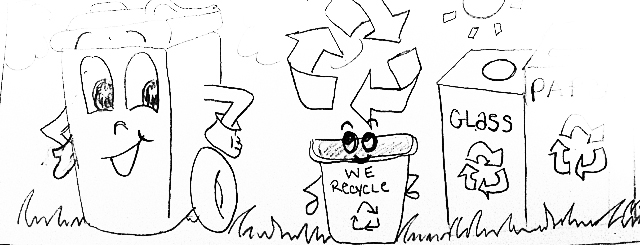Sustainability is an abstract concept which students could be forgiven for not caring about. The costs of sustainability are considerably more visible than its benefits — the word itself likely induces eye-rolling and nausea for some. But developing sustainable, efficient practices should be a priority for the College of William and Mary.
In this vein, we commend Sodexo for donating hundreds of pounds of leftover food to Campus Kitchens after family weekend, as well as being open to donating to other organizations in the future. For all our criticism of Sodexo, its policy is an improvement over that of former contractor Aramark, who refused to donate any leftover food. We hope that Sodexo encourages other local businesses to consider donating, as well.
Beyond Sodexo and Campus Kitchens, students are also driving successful and innovative sustainability projects on campus. Two students have converted a pickup truck into a garden, and plan to use it to promote sustainability at local schools. While unconventional, we admire the project’s creativity and support its mission.
The pickup-truck garden is a student-inspired and student-enacted initiative to improve sustainability on campus. Maximizing students’ desire to take a stand for sustainability, the Students Environmental Action Coalition organized a sold-out bus trip to New York City for the People’s Climate March. For a student body that rarely protests or ventures beyond Williamsburg, this is a refreshing display of activism.
Moving beyond these commendable efforts, the wider community should increase its efforts to go green. For example, the Student Assembly could create a Secretary of Sustainability who could help integrate and promote cooperation between student sustainability projects, enable and encourage other student groups to act sustainably, and submit sustainability proposals to the SA or to the College administration on students’ behalf.
The administration can also do more to promote sustainability. Residence Life could investigate potential waste in dorms and utilize resident assistant programming to encourage residents not to waste water or electricity. With the numerous construction projects across campus, the College could install motion-activated lights in hallways, bathrooms and other common areas. Additionally, the College could work to add more recycling containers throughout campus. Few students will go out of their way to recycle, but given an easy opportunity, most will.
The College and its students need to support additional sustainable projects and behaviors on campus and reward creativity. Above all, we need to create more convenient opportunities for students to practice sustainability.

